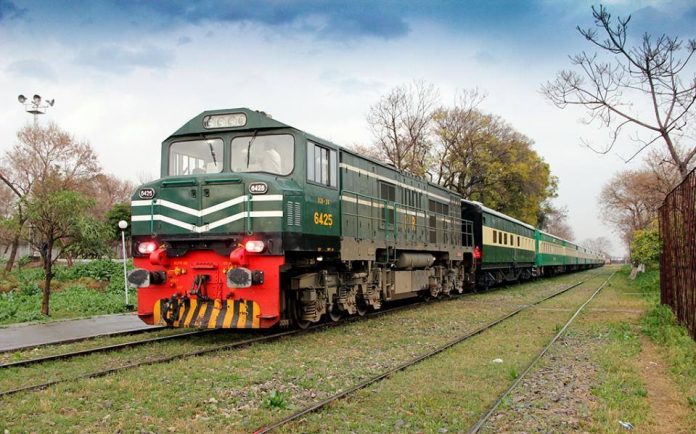Dr. Mehmood Ul Hassan Khan
The China-Pakistan Economic Corridor (CPEC) is on the way of steady progress which has multiplier effects on macro-economy of the country in terms of increase in overall of GDP %, GNP, industrialization, social development and above all new job generation. The 3,000 km long CEPC is to connect China and Pakistan by rail, road, pipeline and fibre optic network. It connects the Chinese province of Xinjiang with the Pakistani port of Gwadar and offers China access to the Arabian Sea.
Most recently, PM Khan had a fruitful meeting with Balochistan Chief Minister Jam Kamal Khan and rigorously consulted over the ongoing projects of the National Highway Authority (NHA) as well as CPEC projects. PM Khan showed his strong resolve to complete all allocated projects of Balochistan under CPEC on a priority basis.
Special Assistant to Prime Minister on Information and Broadcasting, General (R), Asim Saleem Bajwa said that the Central Development Working Party (CDWP) has approved the railway Main Lne (ML-1) project worth of US$7.2 billion. It has approved and recommended ML-1 project to Executive Committee of National Economic Council (ECNEC) with cost US$ 7.2 billion. He said the project scope included dualization and upgradation of 1872 km Railway track from Peshawar to Karachi. While, under the project, Walton Academy would also be up-graded besides building a dry port at Havelian. He termed the approval as a big milestone for second phase of CPEC.
A tripartite agreement between the Chinese Three Gorges Society, the authorities in Azad Jammu & Kashmir and the PPIB to implement the 1,124-megawatt Kohala hydropower project under CPEC has been completed. It is being built on the Jhelum River and aims to provide more than five billion units of clean and affordable electricity to consumers in Pakistan each year.
The Government of Pakistan has now approved modernization of rail mainline project with an estimated cost of $9.248 billion under CPEC. The Central Development Working Party (CDWP), the Annual Plan Coordination Committee (APCC) and PM Imran Khan want to make ML-1 as part of the next fiscal year’s Public Sector Development Program (PSDP) for 2020-21.
The government is considering options to hand over Operation & Maintenance (O&M) of Pakistan Railways under this project to a Chinese firm for a certain period so that it could be run on professional lines.
“This project will not be successful without the reform of the railway sector in Pakistan. The implementation of the Pakistan Railways Strategic Plan (PRSP) is a pre-requisite to the success of this Project as well as the improvement of the quality and financial sustainability of the railway sector in general in Pakistan.
The option of outsourcing O&M of Pakistan Railways came under discussion in the last CDWP meeting held in April 2020 in which the approval of this project was deferred.
The proposal under consideration is handing over the O&M of Pakistan Railways to a foreign Chinese contractor having expertise to run any railway on professional basis for five years.
The arrangement should be devised in such a way where the foreign Chinese firm should run 80% Pakistan Railways and 20% by our local administration.
Such mechanism should decrease the O&M operation by foreign firm 20% each year while the role of local management should increase every year, so subsequently 100% O&M should be handed over to the local management in five years period.
General Manager Sukkur-Multan Motorway (PKM) Xiao Hua has said that despite the grave challenges posed by COVID-19, every effort was being made by his team and Pakistani staff to ensure smooth operation of PKM. He added that they would continue providing assistance within their ability, with full strength of Chinese enterprises to support local people to fight against the virus, and jointly resolve the risks and challenges. There are still 35 Chinese employees living in the HQ camp of PKM project undertaken by China State Construction Engineering Corporation (CSCEC). Despite difficult time during the ongoing deadly and infectious COVI-D-19 localized management and other methods, they continue to operate this motorway during the corona outbreak, ensuring local medical supplies, living materials, etc. between north to south Pakistan.
With a total length of 392 kilometers, the PKM project is the largest transportation infrastructure project under the China-Pakistan Economic Corridor. It has been completed and fully opened to traffic on November 5, 2019.
Most recently, (June 2020), Metallurgical Corporation of China LTD. (MCC), China’s largest steel structure producer, has sent Chinese technicians on a charter flight operated by Air China to Karachi. According to report the team of 78 Chinese technicians along with 1.7 tons of urgently-needed epidemic prevention supplies and treatment medicines, including medical masks, protective suits, infrared thermometers and glucometers was sent to ensure projects under the CPEC proceed.
These Chinese staff had returned to China for Chinese New Year Holidays earlier this year and had become stuck due to the COVID-19 pandemic and the flight ban. To prevent and control the epidemic, the company has taken a series of measures to ensure the smooth operation of the project.
CPEC has the potential to revolutionize macro-economy and regional connectivity as well. It would be growth engine for the country which may be used to reduce poverty and unemployment because according to latest statistics (June 2020), poverty ratio has been increased from 24% to 33% and more than 5 million may lose their jobs. COVI-D-19 has changed the landscape of regional engagement and international financial bailout so CPEC is a blessing which may provide strategic cushion to mitigate spillover repercussions of COVID-19.










